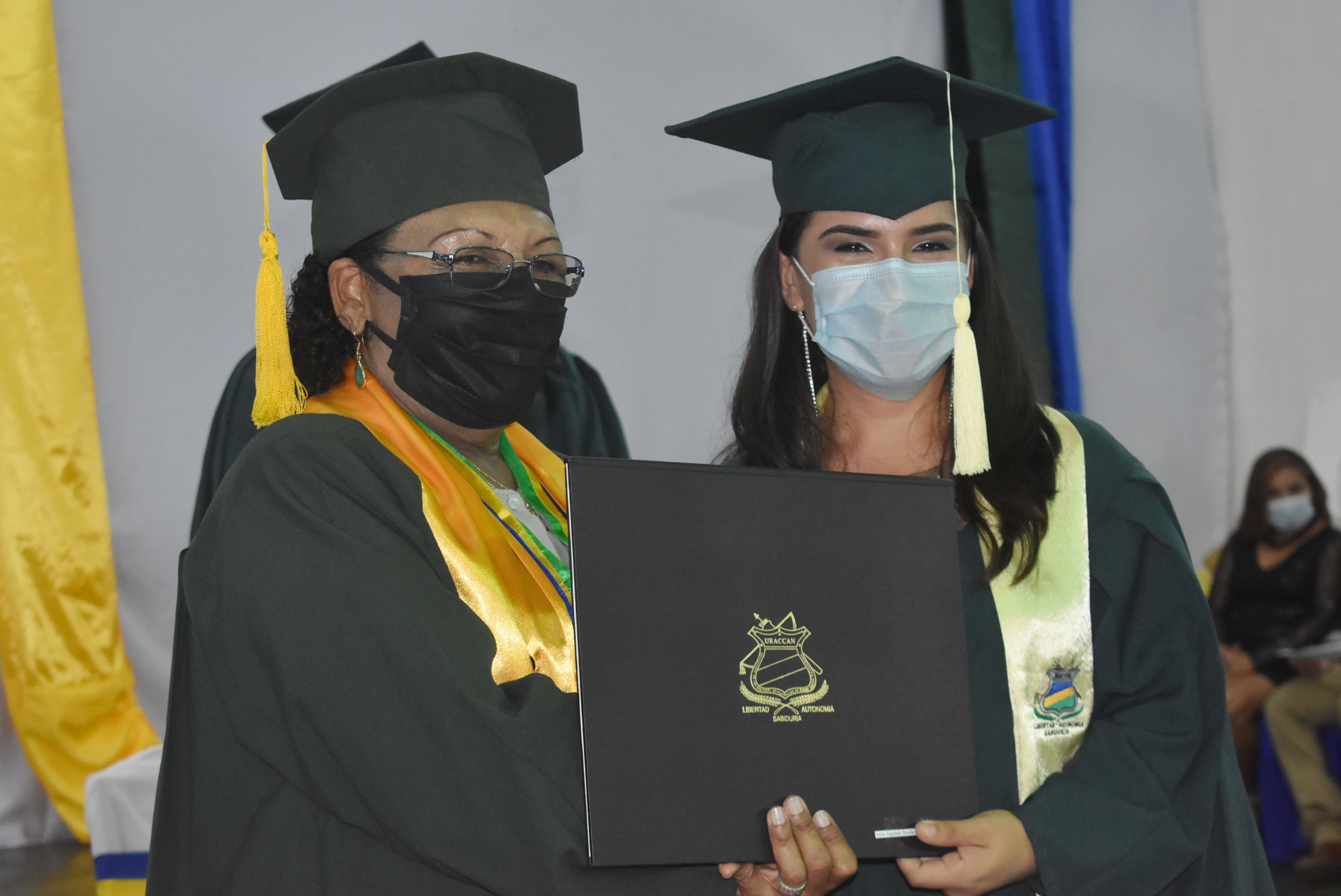
Dr Hooker: "This achievement reflects the collective work of each graduate, but also of the entire university community and their families."
Graduation Act 2020
URACCAN gave the community 33 new professionals who with their knowledge, skills and skills will contribute to the strengthening of Regional Autonomy, to development with identity, to the cultural revitalization and good living of the indigenous peoples and ethnic communities of the country and Abya Yala. The ceremony was presided over by the rector, Dr. Alta Hooker, by the Secretary General, PhD. José Saballos, and by the vice-chancellor of the Bluefields compound, MSc. Diala Lopez.
The graduation event was held at the Bluefields venue and was held under the slogan "URACCAN XXVII years contributing to development with identity and overcoming adversity through intercultural community inclusive education".
The ceremony opened with the entrance of the graduates who gave enhance to this magnificent event. Later the general secretary, PhD. José Saballos, presented to the rector of this university the 33 new professionals.
Introduction of new professionals
Addressing Dr. Alta Hooker, the Secretary-General said: "Your Excellency rector, the General Secretariat has the honour to introduce 33 new professionals from indigenous, Afro-descendant and mixed-race peoples of the South Caribbean Coast, these men and women have met all the requirements required by our Intercultural Community University to opt for four graduates and graduates to the degree of Agroforestry Engineering , a bachelor's degree in Administrative Informatics, four bachelor's degrees in Business Administration with a mention in Marketing, six bachelor's degrees in Psychology in Multicultural Contexts, eighteen graduates and graduates in Sociology with a mention in Autonomy".
"All these graduates and graduates have been trained to strengthen the processes of cultural revitalization and pride of cultural identity, autonomy, development with identity and good living, intercultural gender citizenships of the autonomous regions, their peoples, their municipalities, communities, the country and Abya Yala," Dr. Saballos continued.
Recognition and stimuli to graduates
The event continued with the delivery of titles and brooches by the top authorities, Dr. Alta Hooker and teacher Diala López. At this time, the rector recognized the effort and dedication of three outstanding graduates with the Magna Cum Laude Academic Distinction, for her dedication, selflessness and scientific work for the development of costaemen and women, two degrees in Sociology with mention in Autonomy, Lesbia Cayaso and Elida Argoello, as well as a degree in Psychology in Multicultural Contexts, Velia Sevilla García.
Rector's words
Finally, the highest authority of this study house, Dr. Alta Hooker, gave an emotional speech, ensuring that "this achievement reflects the collective work of each of the graduates, but also of the entire university community, of their relatives, husbands, wives, mothers and parents; the motto they have decided to use seems to me to be extremely relevant because it marks the basis of the training of each of the new colleagues who are graduating, who have prepared since the empowerment that consolidates their thinking as professionals in the Caribbean and therefore of our country, Nicaragua".
"According to the cres (Regional Conference on Higher Education) approach, he says that the goal must be to achieve greater social coverage, quality, relevance, and commitments to our peoples where the development of alternatives, innovations in educational proposals, production and the transfer of knowledge and learning must be induced."
"Our country," the rector Hooker continued, "we can proudly say that she is one of those who has a more robust legal framework and that makes visible the right of these peoples, and part of the political constitution of the country and precisely URACCAN because it is communal and intercultural responds to the autonomy of our Autonomous Regions."- Log in to post comments
- 58 views
